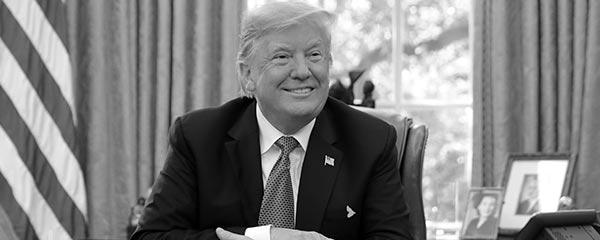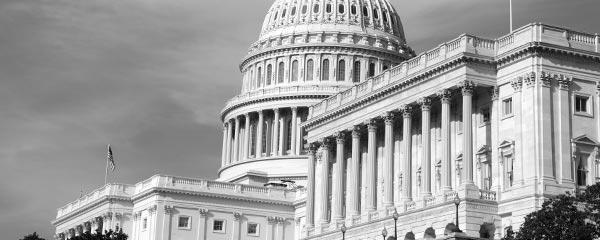The meaning of patriotism in the United States was raised during a tense moment this summer, when President Donald Trump accused four minority women in Congress of "hating America" and inviting them to "leave it" if they "aren't happy here," after they challenged their Democratic Party leaders on immigration policy. Democrats (and a few Republicans) strongly objected, saying essentially that Trump's idea of patriotism is, in reality, racism.
Are American Critics of the U.S. the Ultimate Patriots or Subversive?
One subtext of this confrontation was whether criticism of the U.S. is fundamentally anti-American or, rather, expected behavior in a democracy where citizens have free speech.
The debate is also growing familiar. It erupted in 2016, when now ex-NFL quarterback Colin Kaepernick refused to stand for the national anthem because, as he said, "I am not going to stand up to show pride in a flag for a country that oppresses black people and people of color."
It continued in 2017 with flag burning and arrests near the White House during Trump's inauguration. More recently, Nike Inc. pulled a July Fourth shoe that bore a colonial flag image from the market because of complaints that the flag connotes racism. Trump's "Salute to America" parade and speech at the National Mall this Fourth of July sparked a rash of complaints about the expense, as well as charges that the president was politicizing the holiday.
It's easy to equate lack of pride in the U.S. and failure to respect American symbols like the flag with being unpatriotic. But is pride the same as patriotism, as in "my country, right or wrong"?
Patriotism is widely understood to be an expression of national values and beliefs, as well as a feeling of attachment based on shared customs and history. George Orwell, in his 1945 essay, "Notes on Nationalism," stated that patriotism is a personal "devotion to a particular place and a particular way of life," while nationalism is "inseparable" from the desire for national power and prestige. Patriotism can often be used to stimulate support for a particular government but can become excessive and develop into nationalism. Intense devotion to one's country can also lead to accusations of disloyalty against those who challenge it.
Pride suggests a more reflexive attachment to what America stands for. But for those who disagree with current policies, it can be a thorny trap. To say you're "proud" could mean you accept America's imperfections. To say you're "not proud" could sound un-American. This played out on the campaign trail in 2008, when Michelle Obama said, "For the first time in my adult life, I am really proud of my country because it feels like hope is finally making a comeback," to which Cindy McCain countered, "I have and always will be proud of my country."
That exchange may turn out to have been the precursor of an explosive debate that will come to define the 2020 presidential election and possibly reshape the parties going forward.
Degrees of American Pride
In June 2019, ║┌┴¤═° asked respondents directly, "How proud are you to be an American -- extremely proud, very proud, moderately proud, only a little proud or not at all proud?" Forty-five percent of Americans answered, "extremely proud." By contrast, a combined 30% of Americans are subdued, saying they are either "moderately," "only a little" or "not at all" proud.
| Most proud | Midlevel proud | Least proud | |||||||||||||||||||||||||||||||||||||||||||||||||||||||||||||||||||||||||||||||||||||||||||||||||
|---|---|---|---|---|---|---|---|---|---|---|---|---|---|---|---|---|---|---|---|---|---|---|---|---|---|---|---|---|---|---|---|---|---|---|---|---|---|---|---|---|---|---|---|---|---|---|---|---|---|---|---|---|---|---|---|---|---|---|---|---|---|---|---|---|---|---|---|---|---|---|---|---|---|---|---|---|---|---|---|---|---|---|---|---|---|---|---|---|---|---|---|---|---|---|---|---|---|---|---|
| % | % | % | |||||||||||||||||||||||||||||||||||||||||||||||||||||||||||||||||||||||||||||||||||||||||||||||||
| U.S. adults | 45 | 25 | 30 | ||||||||||||||||||||||||||||||||||||||||||||||||||||||||||||||||||||||||||||||||||||||||||||||||
| Most proud = "Extremely proud"; Midlevel proud = "Very proud"; Least proud = "Moderately proud," "Only a little proud" or "Not at all proud" | |||||||||||||||||||||||||||||||||||||||||||||||||||||||||||||||||||||||||||||||||||||||||||||||||||
| ║┌┴¤═°, June 3-16, 2019 | |||||||||||||||||||||||||||||||||||||||||||||||||||||||||||||||||||||||||||||||||||||||||||||||||||
These most and least proud groups, consisting of three out of every four adults, could infuse the 2020 presidential campaign with a vigorous debate over what it means to be patriotic. The middle 25% of Americans who describe themselves as "very proud" could be considered a swing group.
As ║┌┴¤═° reported in July, the percentage of extremely proud Americans has dwindled over the past two decades, from a high of 70% in January 2003 (about a year after the 9/11 attacks) to 45% today, and is now lower than the pre-9/11 reading of 55% in January 2001. The proportion on the lower end of the "proud" scale has nearly tripled -- from 11% in January 2001 to 30% today.
Democrats have been consistently less likely than Republicans to call themselves extremely proud, including throughout Barack Obama's presidency. However, this level of pride has plunged under Trump, reaching an all-time low this year of 22% among Democrats. By contrast, 76% of Republicans currently identify as extremely proud, consistent with the long-term trend.
The demographic landscape of American pride is shown in the table below, with large differences by party affiliation, political ideology, presidential job approval and age.
| Most proud | Midlevel proud | Least proud | ||||||||||||||||||||||||||||||||||||||||||||||||||||||||||||||||||||||||||||||||||||||||||||||||||
|---|---|---|---|---|---|---|---|---|---|---|---|---|---|---|---|---|---|---|---|---|---|---|---|---|---|---|---|---|---|---|---|---|---|---|---|---|---|---|---|---|---|---|---|---|---|---|---|---|---|---|---|---|---|---|---|---|---|---|---|---|---|---|---|---|---|---|---|---|---|---|---|---|---|---|---|---|---|---|---|---|---|---|---|---|---|---|---|---|---|---|---|---|---|---|---|---|---|---|---|---|
| % | % | % | ||||||||||||||||||||||||||||||||||||||||||||||||||||||||||||||||||||||||||||||||||||||||||||||||||
| Party ID, with leaners | ||||||||||||||||||||||||||||||||||||||||||||||||||||||||||||||||||||||||||||||||||||||||||||||||||||
| Republican/Lean Republican | 66 | 38 | 12 | |||||||||||||||||||||||||||||||||||||||||||||||||||||||||||||||||||||||||||||||||||||||||||||||||
| Independent, no leaning | 9 | 10 | 12 | |||||||||||||||||||||||||||||||||||||||||||||||||||||||||||||||||||||||||||||||||||||||||||||||||
| Democrat/Lean Democratic | 25 | 52 | 76 | |||||||||||||||||||||||||||||||||||||||||||||||||||||||||||||||||||||||||||||||||||||||||||||||||
| Political ideology | ||||||||||||||||||||||||||||||||||||||||||||||||||||||||||||||||||||||||||||||||||||||||||||||||||||
| Conservative | 54 | 31 | 10 | |||||||||||||||||||||||||||||||||||||||||||||||||||||||||||||||||||||||||||||||||||||||||||||||||
| Moderate | 33 | 43 | 41 | |||||||||||||||||||||||||||||||||||||||||||||||||||||||||||||||||||||||||||||||||||||||||||||||||
| Liberal | 12 | 24 | 49 | |||||||||||||||||||||||||||||||||||||||||||||||||||||||||||||||||||||||||||||||||||||||||||||||||
| No opinion | 0 | 2 | 1 | |||||||||||||||||||||||||||||||||||||||||||||||||||||||||||||||||||||||||||||||||||||||||||||||||
| President Trump job performance | ||||||||||||||||||||||||||||||||||||||||||||||||||||||||||||||||||||||||||||||||||||||||||||||||||||
| Approve | 68 | 34 | 12 | |||||||||||||||||||||||||||||||||||||||||||||||||||||||||||||||||||||||||||||||||||||||||||||||||
| Disapprove | 30 | 62 | 86 | |||||||||||||||||||||||||||||||||||||||||||||||||||||||||||||||||||||||||||||||||||||||||||||||||
| No opinion | 2 | 4 | 2 | |||||||||||||||||||||||||||||||||||||||||||||||||||||||||||||||||||||||||||||||||||||||||||||||||
| Age | ||||||||||||||||||||||||||||||||||||||||||||||||||||||||||||||||||||||||||||||||||||||||||||||||||||
| 18-29 | 11 | 23 | 34 | |||||||||||||||||||||||||||||||||||||||||||||||||||||||||||||||||||||||||||||||||||||||||||||||||
| 30-49 | 27 | 35 | 37 | |||||||||||||||||||||||||||||||||||||||||||||||||||||||||||||||||||||||||||||||||||||||||||||||||
| 50-64 | 32 | 24 | 17 | |||||||||||||||||||||||||||||||||||||||||||||||||||||||||||||||||||||||||||||||||||||||||||||||||
| 65+ | 29 | 19 | 11 | |||||||||||||||||||||||||||||||||||||||||||||||||||||||||||||||||||||||||||||||||||||||||||||||||
| Most proud = "Extremely proud"; Midlevel proud = "Very proud"; Least proud = "Moderately proud," "Only a little proud" or "Not at all proud" | ||||||||||||||||||||||||||||||||||||||||||||||||||||||||||||||||||||||||||||||||||||||||||||||||||||
| ║┌┴¤═°, June 3-16, 2019 | ||||||||||||||||||||||||||||||||||||||||||||||||||||||||||||||||||||||||||||||||||||||||||||||||||||
It is also noteworthy that the three pride groups differ on substantive issues that are likely to dominate the 2020 presidential campaign. These are: potential impeachment of Trump, immigration, and the national economic situation for voters.
Political debates over these three issues are already accelerating and will soon be sorted out by the policy positions of the multiple candidates running for office. Note that the midlevel "very proud" category tends to be split on all three issues, confirming its swing-vote status.
| Most proud | Midlevel proud | Least proud | ||||||||||||||||||||||||||||||||||||||||||||||||||||||||||||||||||||||||||||||||||||||||||||||||||
|---|---|---|---|---|---|---|---|---|---|---|---|---|---|---|---|---|---|---|---|---|---|---|---|---|---|---|---|---|---|---|---|---|---|---|---|---|---|---|---|---|---|---|---|---|---|---|---|---|---|---|---|---|---|---|---|---|---|---|---|---|---|---|---|---|---|---|---|---|---|---|---|---|---|---|---|---|---|---|---|---|---|---|---|---|---|---|---|---|---|---|---|---|---|---|---|---|---|---|---|---|
| % | % | % | ||||||||||||||||||||||||||||||||||||||||||||||||||||||||||||||||||||||||||||||||||||||||||||||||||
| Impeach Trump and remove from office | ||||||||||||||||||||||||||||||||||||||||||||||||||||||||||||||||||||||||||||||||||||||||||||||||||||
| Yes | 22 | 51 | 75 | |||||||||||||||||||||||||||||||||||||||||||||||||||||||||||||||||||||||||||||||||||||||||||||||||
| No | 77 | 47 | 22 | |||||||||||||||||||||||||||||||||||||||||||||||||||||||||||||||||||||||||||||||||||||||||||||||||
| No opinion | 1 | 2 | 3 | |||||||||||||||||||||||||||||||||||||||||||||||||||||||||||||||||||||||||||||||||||||||||||||||||
| Preference for immigration | ||||||||||||||||||||||||||||||||||||||||||||||||||||||||||||||||||||||||||||||||||||||||||||||||||||
| Increase | 17 | 25 | 43 | |||||||||||||||||||||||||||||||||||||||||||||||||||||||||||||||||||||||||||||||||||||||||||||||||
| Keep at present level | 33 | 42 | 37 | |||||||||||||||||||||||||||||||||||||||||||||||||||||||||||||||||||||||||||||||||||||||||||||||||
| Decrease | 49 | 31 | 18 | |||||||||||||||||||||||||||||||||||||||||||||||||||||||||||||||||||||||||||||||||||||||||||||||||
| No opinion | 1 | 2 | 2 | |||||||||||||||||||||||||||||||||||||||||||||||||||||||||||||||||||||||||||||||||||||||||||||||||
| View of economy's direction | ||||||||||||||||||||||||||||||||||||||||||||||||||||||||||||||||||||||||||||||||||||||||||||||||||||
| Getting better | 67 | 42 | 26 | |||||||||||||||||||||||||||||||||||||||||||||||||||||||||||||||||||||||||||||||||||||||||||||||||
| Getting worse | 29 | 46 | 67 | |||||||||||||||||||||||||||||||||||||||||||||||||||||||||||||||||||||||||||||||||||||||||||||||||
| Neither/No opinion | 4 | 12 | 7 | |||||||||||||||||||||||||||||||||||||||||||||||||||||||||||||||||||||||||||||||||||||||||||||||||
| Most proud = "Extremely proud"; Midlevel proud = "Very proud"; Least proud = "Moderately proud," "Only a little proud" or "Not at all proud" | ||||||||||||||||||||||||||||||||||||||||||||||||||||||||||||||||||||||||||||||||||||||||||||||||||||
| ║┌┴¤═°, June 3-16, 2019 | ||||||||||||||||||||||||||||||||||||||||||||||||||||||||||||||||||||||||||||||||||||||||||||||||||||
Bottom Line
Political leaders have used American symbols and have wrapped themselves in the American flag to build support for their ideas since the early days of our republic. However, evoking "patriotism" in political campaigns has often been more of a sharp tool to separate rather than unite voters.
The meaning and importance of "patriotism" may now be evolving as Democrats and young adults, more broadly, resist declaring themselves extremely proud to be Americans. While that could change after Trump leaves office, the historical trend suggests that Democratic resistance to proclaiming national pride transcends any particular president and is therefore likely to continue.
This pattern has been evident for some time, but it is coming into greater relief with the substantial partisan gap in extreme pride that has opened under Trump. The less intense pride expressed by Democratic groups under Trump may be a new normal for the Democratic Party as it redirects itself to more global viewpoints and an intense resistance to the "America First" themes of the Trump presidency. And Trump has demonstrated a willingness to expose this gap for his own purposes. Meanwhile, in response to Democrats' evolution, Republicans may increasingly see themselves as the keepers of traditional American symbols.
Consequently, references to American pride in the 2020 presidential campaign may be more about political party base-building and political strategy than about patriotism itself.




